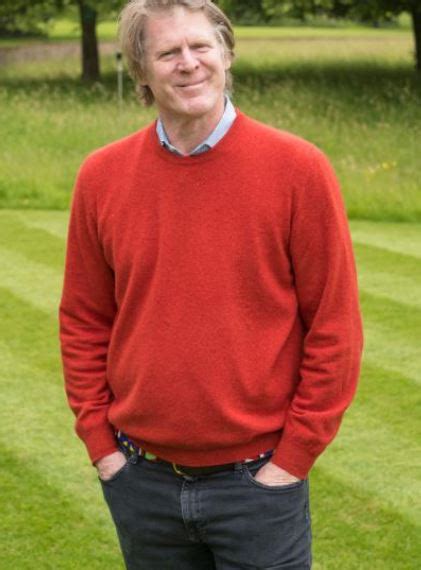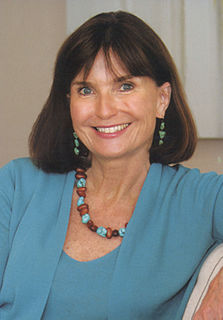A Quote by Pipilotti Rist
I always try to create equal power between the subject and the object, so as not to end up creating a relationship where the camera is here and the object out there. This is for me a very difficult and sensitive balance. When I produce a work, cut and frame images, I realize that spectators can identify with the images and almost forget that someone else actually made them. This would be the optimal situation. I don't know whether I succeed in doing so, but that's what I would like to have happen.
Quote Topics
Actually
Almost
Always
Balance
Between
Camera
Create
Creating
Cut
Difficult
Doing
Else
End
Equal
Equal Power
Forget
Frame
Happen
Identify
Images
Know
Like
Made
Me
Object
Optimal
Out
Power
Produce
Realize
Relationship
Sensitive
Situation
Someone
Spectators
Subject
Succeed
Them
Try
Up
Very
Whether
Work
Would
Would Be
Related Quotes
I am myself a professional creator of images, a film-maker. And then there are the images made by the artists I collect, and I have noticed that the images I create are not so very different from theirs. Such images seem to suggest how I feel about being here, on this planet. And maybe that is why it is so exciting to live with images created by other people, images that either conflict with one's own or demonstrate similarities to them.
I worked very hard to try and figure out what I thought and I believed that we were going to succeed and that revolutions would happen globally and we would be a part of that and we would have then not capitalism. We would have values based on human lives, not profit. We would actually transform the kinds of ways people built love and built community. It was a very shocking thing to me, out of the end of the 70s and the beginning of the 80s, to realize that that dream - while I still believed in it - was not going to happen in the way that I had hoped.
Many people will tell you that an expert is someone who knows a great deal about the subject. To this I would object that one can never know much about any subject. I would much prefer the following definition: an expert is someone who knows some of the worst mistakes that can be made in the subject, and how to avoid them.
I knew he wouldn't come, but I howled anyway, and when I did, the other wolves would pass images of him to me of what he looked like: lithe, gray, yellow-eyed. I would pass back images of my own, of a wolf on the edge of the woods, silent and cautious, watching me. The images, clear as the slender-leaved trees in front of me, made finding him seem urgent, but I didn't know how to begin to look.
I find it strangely beautiful that the camera with its inherent clarity of object and detail can produce images that in spite of themselves offer possibilities to be more than they are a photograph of nothing very important at all, nothing but an intuition, a response, a twitch from the photographer’s experience.
It is important to understand, not intellectually but actually in your daily life, how you have built images about your wife, your husband, your neighbor, your child, your country, your leaders, your politicians, your gods-you have nothing but images. The images create the space between you and what you observe and in that space there is conflict, so what we are going to find out now together is whether it is possible to be free of the space we create, not only outside ourselves but in ourselves, the space which divides people in all their relationships.
It's a profoundly different thing to be able to refer to the images you are taking at the time and check them out on a laptop that is plugged into your Hasselblad and go "oh no, do it again, do it again" - all of those a requickly made decisions. The fact that you can see the images right away in a funny way makes the whole relationship more casual. I don't want a casual relationship with my subject.
I want to create work that extends beyond myself because I always thought it was a way to change the general rules about art, and also to give an impulse to something else. It's a transformation about attitude. Most of the time, when someone buys the object, it's 100 percent transferred to them. I don't think this is true. Something exists within the object that can never be appropriated. This little part, I try to make it visible.
Images are no longer what they used to be. They can't be trusted any more. We all know that. You know that. When we grew up, images were telling stories and showing them. Now they're all into selling. They've changed under our very eyes. They don't even know how to do it anymore. They've plain forgotten. Images are selling out the world. And at a big discount.
So let's say you realize that you are never going to be a 9 a.m. to 5 p.m. person. You're not cut out for that sort of typical work environment. The benefit might be that if you embrace that and say I need to be self-employed or I need to be doing more project-oriented work. Identify the benefits - I'd be more productive. I'd be happier. The people around me would be happier because my mood would be better. When you identify the benefits of accepting the behavior or habit, you actually give leverage to it and give yourself a better chance of sticking with it.







































